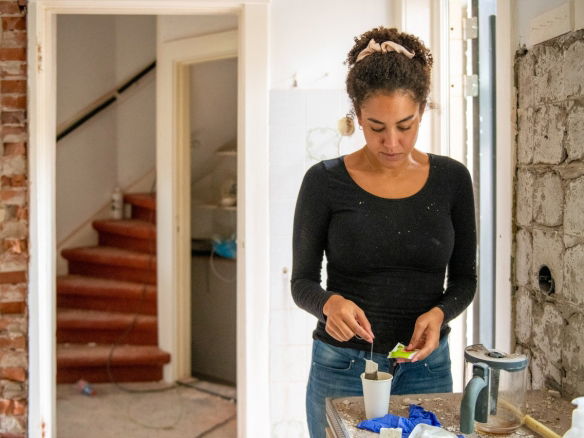As the appeal of private, well-maintained communities continues to rise in Jamaica, more prospective homeowners are considering residences that come with a Homeowners Association (HOA). Whether you are interested in an upscale gated subdivision or a modest new development, understanding how HOAs function is key to making an informed real estate decision. This comprehensive guide explores the role of HOAs in Jamaica, explains what homeowners can expect, and offers practical tips for buyers and property owners.
Table of Contents
- What Is an HOA and Why Does It Matter?
- Gated Communities vs. Other Types of Developments
- Key Components of an HOA
- Financial Considerations and Transparency
- Benefits of an HOA
- Challenges of HOAs
- Best Practices for Prospective Buyers and Homeowners
- Looking Ahead: The Future of HOAs in Jamaica
- Conclusion
- FAQs About Homeowners Associations (HOAs) in Jamaica
What Is an HOA and Why Does It Matter?
An HOA is an organized group of property owners within a residential community formed to manage and oversee shared aspects of that neighborhood. In Jamaica, HOAs ensure that communal areas—such as recreational facilities, security services, landscaped grounds, and utilities—are properly maintained. The goal is to preserve property values, encourage harmonious living, and foster a sense of community among residents.
Although HOAs have long been popular in other countries, such as the United States, they are a relatively newer concept in Jamaica that has gained traction as residential developments become more sophisticated. In many cases, developers establish an HOA during the initial planning stages of a project and then eventually transfer control to elected homeowners, who make decisions regarding the upkeep and general rules of the development.
Gated Communities vs. Other Types of Developments
Gated communities in Jamaica typically feature controlled access points, ranging from security-guard stations to automated gates. Many include amenities like clubhouses, pools, gyms, and convenience stores—features that appeal to homebuyers seeking both convenience and added security. The establishment of an HOA is common in these developments, as it helps streamline maintenance and organizes the fees necessary to run shared facilities.
HOAs vs. Strata Corporations
It is important to note that HOAs in Jamaica are not governed by the Registration of Strata Titles Act, which applies to strata complexes such as multi-unit apartment buildings. Instead, HOAs are formed based on covenants, conditions, and restrictions listed on the Certificate of Title and in the association’s governing documents. Homeownership in these communities binds owners to the HOA’s covenants and rules. Failure to comply could lead to penalties, including liens or lawsuits.
Key Components of an HOA
Although each HOA may have its own unique rules, most share certain foundational elements:
- Legal Documents and Covenants
HOAs have formal covenants—recorded with the municipal council in the relevant parish—outlining the rights and responsibilities of both the HOA board and the homeowners. These covenants are usually detailed in a Homeowners Agreement (HOA Agreement), which clearly explains the community’s architectural standards, use of amenities, and other rules. - Board of Directors or Executive Committee
HOAs are typically managed by a board elected from among the residents. This board oversees the finances, ensures compliance with rules, and acts on behalf of the community when entering contracts (e.g., hiring landscaping or security services). - Association Fees and Assessments
One of the essential functions of an HOA is to collect fees, often charged monthly or quarterly, to fund the maintenance of shared amenities. In some cases, HOAs issue special assessments for major repairs or urgent projects. For instance, if a community needs to replace a generator or upgrade security systems and reserves fall short, each homeowner may be required to pay an additional fee. - Rules and Enforcement
HOAs typically have a set of rules ensuring that the community remains orderly and aesthetically consistent. Common restrictions include noise regulations, parking guidelines, pet policies, and short-term rental limitations. Boards can often change or adopt new rules, although significant alterations usually require a majority vote among homeowners.
Financial Considerations and Transparency
Because HOAs rely on resident fees, maintaining transparent finances is vital. When buying property in such communities, carefully review the annual budgets, reserves, and any history of special assessments. If an association consistently runs deficits or is embroiled in disputes over mismanagement, you could encounter unexpected expenses and additional stress.
A recent legal case in Jamaica highlighted the importance of clarity in these arrangements. An HOA that was not recognized as a legal entity lost its ability to force residents to pay maintenance fees. While this was a unique situation, it underscores the importance of ensuring that the HOA operates lawfully and is accountable to its members.
Benefits of an HOA
Despite the potential complexities, the benefits of a well-managed HOA often outweigh any drawbacks for many homeowners:
- Preserves property values: A diligently enforced set of guidelines helps maintain a uniform aesthetic, reducing the risk of neighboring properties becoming an eyesore that drags down values.
- Shared amenities and services: The HOA collects fees to cover security, maintenance, landscaping, and other amenities. This shared approach can save individual homeowners both time and money compared to managing these services alone.
- Structured dispute resolution: By including clear guidelines and processes in the governing documents, disputes between residents or between a resident and the HOA have a defined path to resolution.
- Sense of community: Residents often enjoy neighborhood events, meetings, and volunteer committees that promote a sense of collective responsibility and camaraderie.
Challenges of HOAs
While the advantages are appealing, HOAs are not without their potential pitfalls:
- Mandatory Fees: Ongoing fees may be substantial, especially if your community has extensive shared amenities.
- Restrictive Rules: Some homeowners may chafe under strict rules about landscaping, home improvements, and noise regulations.
- Board Conflicts: Power struggles within HOA boards or accusations of mismanagement can lead to stress, lawsuits, and declining morale.
- Legal Grey Areas: In Jamaica, many HOAs are not governed by a single unified law, which can create confusion. Legal precedents are still evolving regarding their authority to impose and collect fees.
Best Practices for Prospective Buyers and Homeowners
If you are considering buying property within a Jamaican HOA, here are some recommendations:
- Request and Review HOA Documents
Carefully read the HOA Agreement, financial statements, bylaws, and any covenants attached to the title. This is your first defense against unexpected obligations or conflicts. - Talk to Residents
If possible, speak with owners who are not on the HOA board to get an unbiased view of what it is like to live there. Ask about fees, rule enforcement, and the overall ambiance of the neighborhood. - Attend HOA Meetings
Homeowners in an HOA community often have the right to attend board meetings. This will help you stay informed about upcoming projects, financial changes, and any potential rule modifications. - Stay Current with Fees
Even if you have disagreements with the board or the way fees are allocated, refusing to pay might result in penalties, legal complications, or harm to your property investment. - Consider Long-Term Maintenance Costs
A community with extensive amenities will need ongoing improvements—over time, facilities age and require repairs or upgrades. Budget for both monthly fees and possible special assessments. - Seek Legal Advice if Needed
If something in the HOA Agreement seems unclear, do not hesitate to consult a Jamaican real estate attorney. Understanding your legal position can save you major headaches later.
Looking Ahead: The Future of HOAs in Jamaica
As real estate development continues to expand across the island, HOAs will likely become more commonplace, particularly in gated subdivisions that promise security and a cohesive community. For buyers, embracing these communities means balancing communal living benefits with the responsibility and cost of shared upkeep. For developers and current HOA boards, ensuring robust, transparent governance will be crucial to maintaining high resident satisfaction and sustaining property values.
Conclusion
Understanding how HOAs function in Jamaica can be the difference between a seamless homeownership experience and years of avoidable disputes. By diligently researching the financial health of the association, clarifying any legal uncertainties, and actively participating in community governance, you can ensure that your investment thrives.
A well-managed HOA not only protects the aesthetic and financial value of your home but also fosters a sense of shared purpose among neighbors. For many, this combination of security, community, and property-value preservation is worth the added fees and regulations. As the demand for orderly, upscale living environments continues to grow in Jamaica, HOAs are set to play a pivotal role in shaping the nation’s residential landscape.
Note: This article is intended for informational purposes and should not be considered legal advice. If you have specific questions or concerns about HOAs in Jamaica, consult a qualified real estate attorney.
FAQs About Homeowners Associations (HOAs) in Jamaica
How do I know if a Homeowners Association is legally established?
In Jamaica, the HOA’s covenants and rules are often outlined in the Certificate of Title and a Homeowners Agreement. Ask to see these documents before purchasing a property. You should also confirm the association is formally registered and has clearly defined bylaws. If necessary, consult a real estate attorney to verify its legal standing.
What happens if I do not pay my HOA fees?
HOAs typically have the authority to impose penalties, liens, or even initiate legal actions for delinquent payments. Not paying fees can also affect the community’s upkeep, since those funds typically cover security, landscaping, and maintenance. If you have a dispute about fees, it’s best to address it through the HOA’s established channels or consult a lawyer if the issue remains unresolved.
Can I customize my home or condo if I live in an HOA community?
Most HOAs maintain guidelines (sometimes called covenants, conditions, and restrictions) that homeowners must follow when making changes to their properties. This could include rules about exterior paint colors, fences, extensions, or any modifications visible from the street. It’s essential to review these guidelines carefully and submit any required applications for approval before starting renovations.
Is an HOA the same as a strata corporation?
No. In Jamaica, HOAs generally govern standalone homes in gated communities, whereas strata corporations are governed by the Registration of Strata Titles Act and usually apply to condominiums, apartments, or townhouses with shared facilities. Although both manage communal expenses and guidelines, they operate under different legal frameworks and rules.





